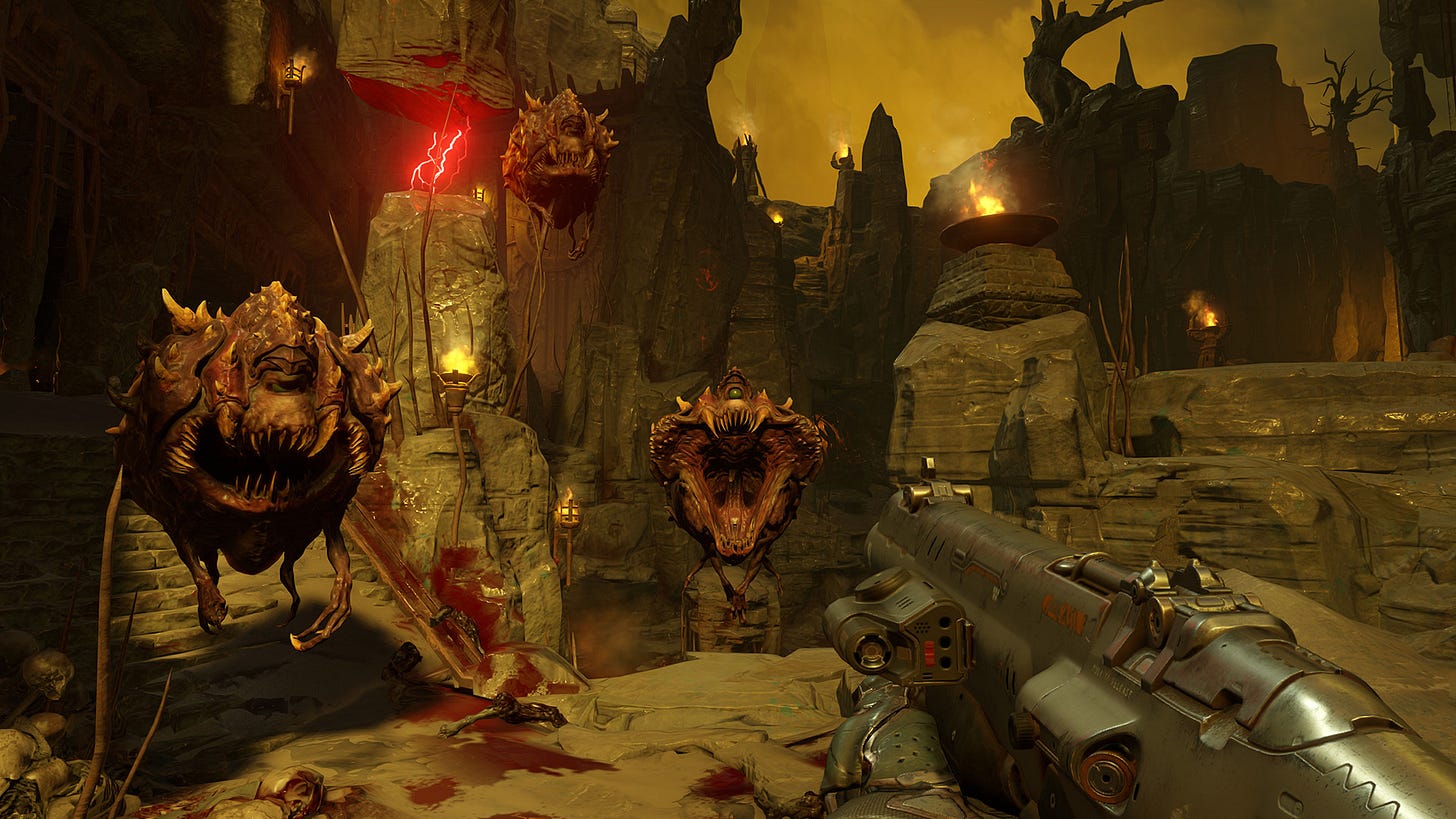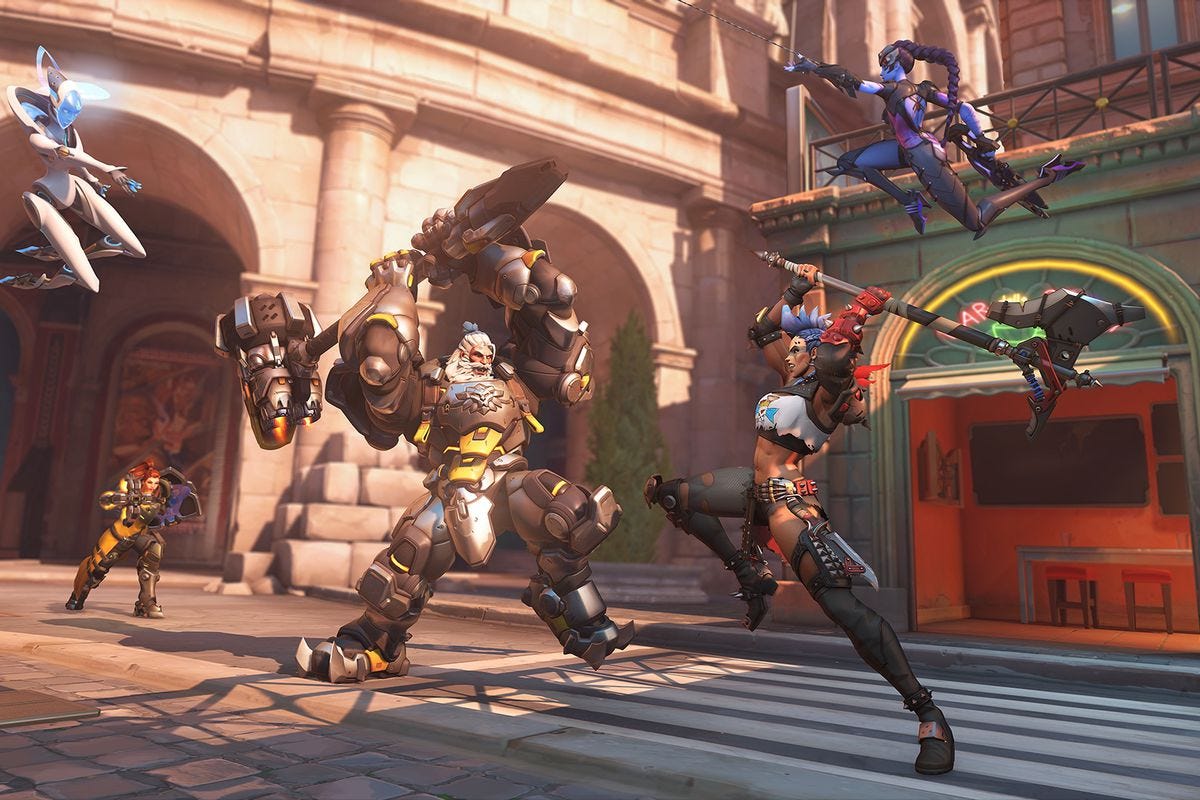Could Playing Video Games Actually Be Good for Your Mind?
I wrote this $500 piece for Popular Mechanics and then it was killed after it was COMPLETELY finished, for budget/restructuring reasons, which is super fun <3
« PRETTY, LITTLE, PIXELS is an independent newsletter about video games that are weird, different, pretty, and/or indie—by Juno Rylee Schultz (she/her).
Pretty, Little, Pixels will always be free but tips are appreciated and do help support this publication.
» Consider buying me breakfast or coffee on Ko-Fi/PayPal, or leaving me a small tip on Venmo.
« Contact me at juno.stump@gmail.com if you need someone with experience in mock reviews, copy editing/writing, PR work, etc »
Note: This piece was originally commissioned by POPULAR MECHANICS in 2023 for $500. I worked on gathering sources and research for the first five months of 2023. Writing was completed between May and September, which is when the piece was turned in.
The editor and I worked on edits in January and February 2024, completing the piece in March 2024.
The piece was killed 2 weeks later, due to budget/restructuring at PopMech, even though it was completely finished. I pitched the piece to Washington Post, INVERSE, Polygon, GameSpot, and a few dozen other publications to no avail.
I spent a lot of time on this. Thank you for reading.
Edits: Morgan Shaver (they/them), Nathan Miller (he/him), and Bex Stump (she/her).
Growing up, trans and closeted, video games were the only way I could ever catch my breath and breathe; they gave me somewhere to go and collect my thoughts. Being forced to pretend to be a boy all day for the benefit of my biological mother and comfort of others was exhausting. It was like writing and running a constant reality show that I had no interest in participating in, with rules and a stranger's story essentially lining my entire life. But in video games it was different.
So, I’ve always sensed that gaming must be okay—and possibly even good for us, on some level. I just couldn’t imagine a scenario in which my one safe haven was also somehow evil.
KRIS from Pokemon Crystal/Pokemon/Nintendo/Creatures Inc,
Despite that, distracted politicians, misguided church leaders, and well-intentioned parents have been railing against video games for as long as I can remember, often framing them as unhealthy or as the cause (eww, don't actually click on this Joe Rogan link) for wider, societal failures. But the world of academia has concluded that video games are actually okay, perhaps even good for the brain—especially the chaotic, violent ones.
Doom 2016/Bethesda/Xbox
Perception, attention, and reacting to data allows busy action games, known for their guns and violence, to train the brain and mind to be stronger and even more attentive.
Researchers have commonly agreed on using their own classification of action games when studying the effects they can have on cognition and other brain functions. These action video games are primarily broken up into first-person shooters and third-person shooters, such as Call of Duty and Gears of War—and for specific reasons.
In a 2023 meta analysis published in the peer-reviewed journal Technology, Mind, and Behavior, researchers concluded that “lumping all video games together when considering their effects on the brain and behavior would be roughly equivalent to lumping together all types of food when considering relationships with body composition.” This ran in agreement with earlier studies conducted by Powers & Brooks, in a 2014 study.
The violence that is so common in this constructed 'action' genre is just the context for the onscreen player actions; what's so important is that these set actions are often consistent and utilize particular parts of the brain, aiding in training the brain to be stronger and even more attentive in high focus/high stress situations.
Gears 5/Xbox
Action games have been of particular interest when researching the effects of video games on the brain because they all often share a set of traits, including “enemies that can appear anywhere within a large field of view, cluttered visual scenes … and independently moving targets [with players] being expected to place heavy load on certain perceptual, attentional, and cognitive skills in a way that is not [consistently] true of most other video games genres."
This context is important because it shows not only which types of games are most often used in these types of academic studies, but the reasoning as well. Researchers have acknowledged that most other game genres do possess the same types of gameplay characteristics, like looking for specific targets onscreen, achieving timed objectives, dodging obstacles, etc, but that these traits are all more consistently present in their group of action games. This makes games like Super Mario Bros. Wonder and The Sims 4 less useful for cognitive studies since these two titles, and other games from genres outside of the created action genre, which contains first and third person shooters, don’t possess the consistent gameplay behaviors to challenge research study participants in the same way.
In a March 2023 research study, published by Technology, Mind, and Behavior, a peer-reviewed journal published by the American Psychological Association that concluded in March 2023, researchers have been able to conclude “that there is a connection between playing action video games and human cognition", meaning we can draw a line between improved cognitive function in humans that play first and third person shooters.
The research results reflected that participants who were ‘action video game’ players “tended to score higher than non-players on tests of cognitive skill involved in the games.”
Overwatch 2/Activision-Blizzard/Xbox
Participants were tested in two groups; one group that played action games and then a group that did not engage with the action games, instead participating in tasks considered to not exercise or use the same cognitive brain functions. The first group played the research-created genre 'action games' for 8 hours a day, for 8 days, with the cognitive tests being performed at least 24 hours after the game training.
There were several different cognitive tasks tested, including perception, which included tasks measuring the precision or speed of perceptual information processing, such as perceptual discrimination, contrast sensitivity, and visual acuity. And this is just one of the cognitive traits that were measured.
Top-down attention is another cognitive trait that was measured, where participants were measured on their precision and speed in serial visual search tasks and multiple object tracking.
Multitasking, where participants were measured on their ability at maintaining several goals and switching between task sets, was another cognitive criteria, along with verbal cognition, problem solving, motor control, inhibition, bottom up attention, and visual spatial cognition.
The studies showed “nongame players [showing] greater improvements on tests of cognitive skills than those assigned to engage in a control activity,” supporting the overall conclusion, as well as encouraging "further work [and development on] computer games for cognitive training."
GAMES WITHOUT GUNS CAN HELP YOUR BRAIN STAY ON TARGET TOO, WITH ROLE-PLAYING TITLES AND OTHER GAMES ALSO SHOWING BENEFITS INSIDE THE BRAIN, WHEN PLAYERS SPEND TIME FOCUSED AND BREATHING THERE
The constraints of this March 2023 study focusing on action-oriented games doesn’t mean that adventurous, less action-focused games like Stardew Valley and Pokémon Crystal don’t offer quantifiable benefits as well, though.
It's concluded in an analysis of a 2019 study, titled 'Effects of computer gaming on cognition, brain structure, and function: a critical reflection on existing literature', that acknowledges much research on these topics is definitely still needed, and it can be hard to know for sure what works and why, it is clear that "that somehow, some video games have some beneficial effects on cognition in some individuals".
Stardew Valley/ConcernedApe
It isn't always known exactly why but being given an environment to work through, process, and simulate social interactions and problem solving just seems to help some people, in ways that can be seen in the healing, but difficult to measure and quantify along the way. Space? Time? Being shown the tools and how to use them? Who's to say? But games definitely seem to be a great tool for some, and an option worth considering for others, looking to improve memory, treat the way ADHD affects their lives, and finding new levels of joy in lives that may otherwise feel lacking or unfulfilling at times.
In a 2022 study, it was determined that creating avatar characters in video games “can be a uniquely positive and affirming experience for transgender youth, across gender identities and experiences", with many transgender and gender diverse people " [using] avatars to explore, develop and rehearse their experienced gender identities, often as a precursor to coming out in the offline world."
Researchers who participated in the study also agreed that “healthcare providers should consider discussing [the creation of video game characters] to better understand both their gender histories and how they seek support.”
The Bottom Line
So as it turns out I was right when I was five years old, and I decided that video games must be simultaneously healthy and magical. These digital places may sometimes just be silly fun, but they can also improve our brain’s cognitive function, improve our memory, help with managing ADHD, and even help people working through gender dysphoria, when they can’t see themselves in a mirror.
ABOVE: Kris from Pokemon Crystal, the first time many girls were able to see themselves in a video game
And in a rather spectacular bit of irony, the games our pastors and parents always hated the most just might be the best ones for our brains and long-term cognitive health: the ones with blood, guts, and guns.
But it's nice that playing Pokemon, Animal Crossing, or even just building a character in The Sims 4, can help people working through intense issues or just finding more dopamine in their day to day lives.







